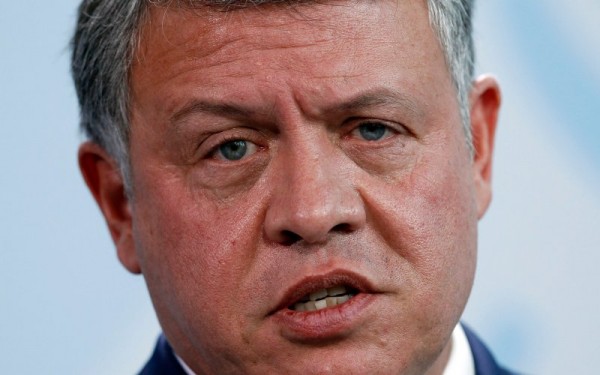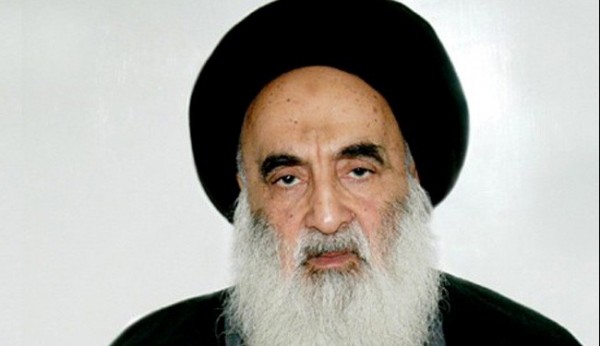
By: Jamie Dettmer
In blunt language back in 2004 Jordan’s King Abdullah raised the alarm about what he called a “Shia crescent” taking shape from Iran through Iraq and Syria to Lebanon.
The king was warning about the consequences of the U.S.-led invasion of Iraq the year before — an invasion he had advised against, fearing it would end up boosting the regional clout and stir the imperial ambitions of Tehran, as it did, and that it would roil the Middle East’s oldest conflict, between Sunni and Shia Islam, dating back to the year 632 and the death of the Prophet Mohamed.
The American-protected Shia-dominated government that had taken power in Baghdad was only making matters worse with its promotion of a sectarian brand of politics. “If sectarianism deepens and spreads, its destructive effect will reflect on everyone,” he said. “Our region will drown in a conflict whose outcome cannot be foreseen.”
King Abdullah’s warning was dismissed at the time as alarmist.
Now it reads like an understatement.
The phenomenal escalation of the Yemen war last week, and calls by the Arab League to establish a permanent multinational force, may be presented as joint action against extremism, but few in the region doubt the move is meant to contain and deter Iran.
Many Sunnis in the Middle East used to think that was America’s job, and today they lay much of the responsibility for the turmoil sweeping across Mesopotamia, the Levant, and the Arabian Peninsula at Washington’s doorstep.
The pursuit of short-term Western gains by U.S. administrations — from President George W. Bush’s war of choice ousting Saddam Hussein to President Barack Obama’s resolve to seal a nuclear deal with Tehran come what may — have failed to consider, or to credit, the likely long-term consequences.
Above all, an American public reared on ideas of pluralism and the separation of church and state is ill equipped to deal with a Middle East where history and religion are destiny. So U.S. politicians and policymakers approach the region and its sectarian divisions with an almost ahistorical mentality, failing to appreciate that the Shia-Sunni (and Arab-Persian) animosity is real and contemporary, and not some feud long ago consigned to the dusty shelves of unused libraries.
Religion is politics in the region—denomination decides social status and economic opportunity or the lack of it. Shiites in the Arab world, historically an oppressed peasantry whether they were a minority or the majority of the population in each country, have been organized around their faith—and armed and indoctrinated by Iran’s mullahs—to take power by hook or by crook or, with American help, by the ballot box. The Sunnis, led by monarchs and generals fighting for a very old status quo, are determined not to let that happen.
So, as the Saudi-led coalition of some 10 (Sunni majority) countries attempts to pummel Yemen’s Shia-offshoot Houthis into submission, the stage looks set for another long-running conflict that won’t be solved any time soon by negotiation. As the American anthropologist Scott Atran has explained, “sacred values,” when firmly held, are not something people will barter away. As with Syria and Iraq, in Yemen there is little to negotiate—this will be a fight to the finish, or at least until exhaustion has been reached, in a Muslim repeat of Europe’s Thirty Years War of the seventeenth century.
The tensions leading up to the explosion in Yemen have been building for years. What began as a local conflict with the relatively small Houthi minority naturally attracted the participation of neighbors and risked morphing into a full-scale regional war.
Thanks in part, ironically, to the Arab Spring toppling of autocrats, the framework for regional order established by dictators has gone and the readiness to bargain and cut realpolitik deals has disappeared with it.
With the collapse of governments and the breaking up of Arab states, religious visionaries and fanatics—from Sunni jihadists to militant Shiites — have filled the void with the aim of establishing transnational power. Abu Bakr al Baghdadi’s putative Islamic State caliphate would do away with borders drawn by the victorious Western powers after the First World War. Iranian mullahs want to re-establish a “greater Iran.”

Earlier this month and barely picked up by the Western media (and downplayed by nuclear-focused U.S. officials), a senior adviser to Iranian President Hassan Rouhani called for a union between Iran and Iraq, arguing the geography of the two countries couldn’t be divided, although he noted there are practical obstacles to any unification.
Iraq is “the center of Iranian heritage, culture, and identity,” Ali Younesi, a former intelligence minister, declared in a March 8 speech in which he talked about a “greater Iran” stretching to the Gulf and even parts of the Indian sub-continent.
“We cannot preserve our interests, national security, and historic identity without attention to Iran’s regional influence and borders,” Younesi said. He added, “If we disregard the region that lies within our sphere of influence, we will be unable to protect our interests and security. … Since its inception, Iran has had a global [dimension]; it was born an empire.”
There was immediate pushback by other senior Iranian officials. One former vice president, Mohammad Ali Abtahi, warned on a Facebook posting that such rhetoric would “be construed as the same threatening talk of Ahmadinejad,” Rouhani’s hardline predecessor as president. He cautioned, “Irrespective of their governments, people have a sensitivity to their land, and this talk provokes people’s sensitivities.”
But for the Gulf’s Sunni monarchies Younesi’s boast of Iran being born an empire is in keeping with Iranian practice. In the time of the Shah, before the Islamic Revolution, they worried about Iranian (that is, Persian and Shiite) hegemony as well. (It was actually the Shah who started the nuclear program that first sent shock waves through the nearby emirates.)
Since the Syrian civil war erupted four years ago, a transnational Shia force backed by Tehran has been taking shape. In Syria, the regime of Bashar al Assad, a member of the Alawi sect of Shia Islam, has been in effect saved by an Iran-coordinated Shia intervention made up of an assortment of Shia militias with Hezbollah, Lebanon’s powerful Shia movement, in the vanguard, training and overseeing militiamen from Iraq and Iran.
With Iranian military advisers, Hezbollah tacticians and drill sergeants have helped build up a paramilitary National Defense Force of 100,000 in Syria with volunteers drawn from various sects.
Likewise, in Iraq it is the Shia militias who are leading the fight against the so-called Islamic State, or ISIS, and in the battle to oust the jihadists from Saddam Hussein’s home town of Tikrit the militias have provided the majority of fighters. The effort to defeat ISIS is being overseen by Iran there, too, with Qasem Suleimani, the chief of Iran’s al Quds branch of the Revolutionary Guard, directing battlefield tactics. Across the region, where the greatest dangers to Iran emerge or the best opportunities surface, Shia militiamen are rushed and despite their different nationalities they fight with great cohesion.
The Saudi-led intervention in Yemen is an expression of both fear and frustration— fear that Iran is exploiting the Houthis and frustration with what Riyadh sees as a blinkered American determination to downplay Tehran’s imperial aspirations for the sake of pulling off a nuclear deal with Iran.
For President Obama, a nuclear-deal would form the core of his foreign-policy legacy—but the cost is high. As with the short-term gain of the ouster of Saddam Hussein, so with a nuclear deal—the intention may be a durable peace, but the long-term consequences are ones of turmoil and conflict
The Daily Beast

Leave a Reply
You must be logged in to post a comment.